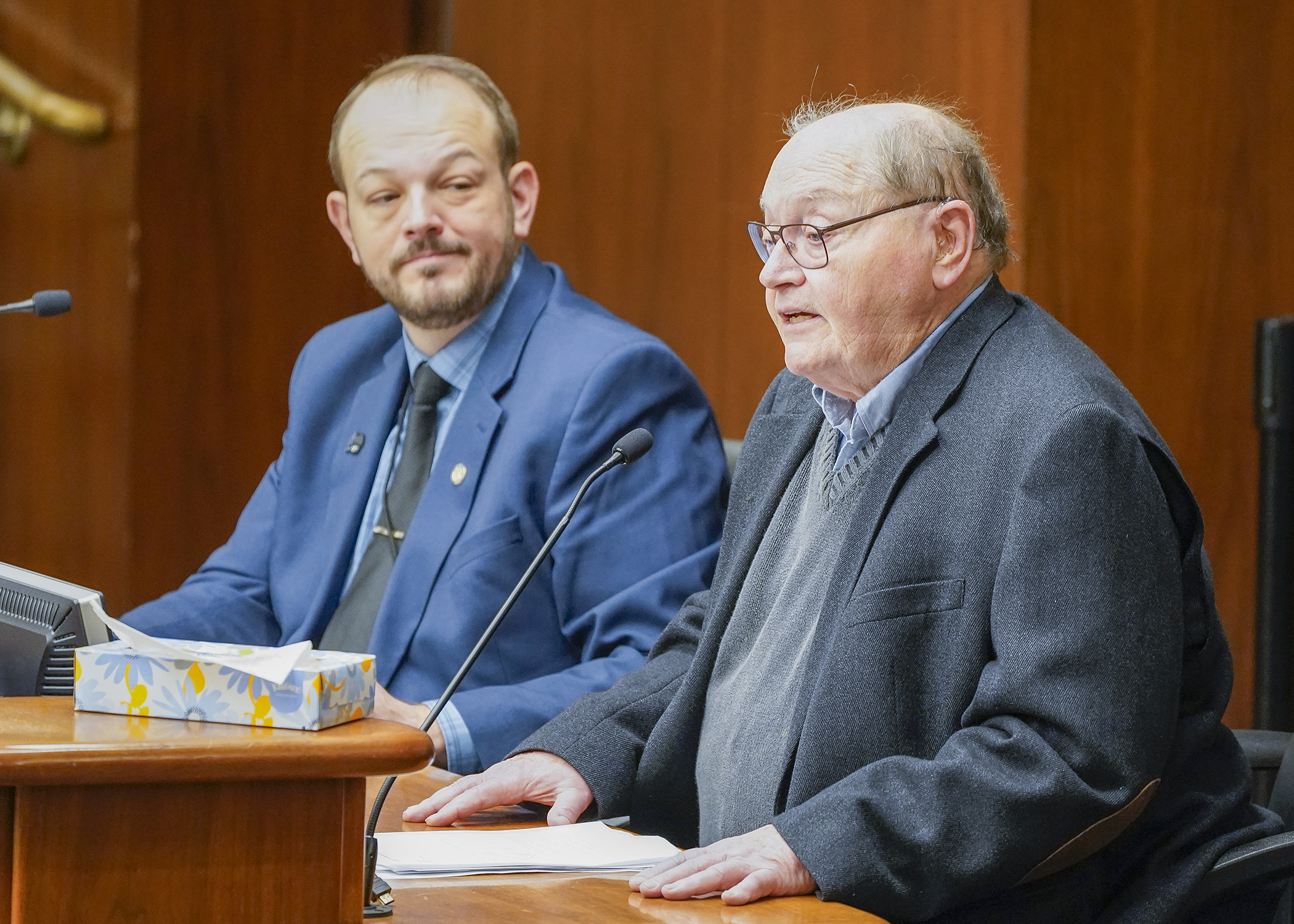Funding boost sought for program helping people with significant disabilities find employment

Herman Gordon has had a tough life.
Sexually abused as a boy, an undiagnosed mental illness not dealt with until he was in his 40s, and substance abuse for decades.
But Gordon’s story has changed for the better, for which he credits the Extended Employment Program. It coordinates with accredited community rehabilitation programs to offer no-cost job support for people with significant disabilities who want to work and employers who need qualified employees.
A major accomplishment: He is now six years sober.
“I stand here today and I have joy,” Gordon told the House Workforce Development Finance and Policy Committee Wednesday.
“Extended employment helps with my self-esteem. I wake up, I feel like I am accomplishing something in this world.”
He spoke in support of HF1501, sponsored by Rep. Jeff Brand (DFL-St. Peter), which would increase funding to the Extended Employment Program by appropriating $11.5 million from the General Fund each year of the 2024-25 biennium, $4.5 million of which would be for making new and increasing rate increases for providers.
The workforce panel approved the bill, as amended, and sent it to the House State and Local Government Finance and Policy Committee.
Extended employment “provides dignity to the folks that otherwise wouldn’t have opportunities to be employed,” Brand said. However, funding for the Department of Employment and Economic Development program has not been stable for many years which reduces its effectiveness.
To that end, Brand said his bill would appropriate an additional $6.8 million in each year of the 2024-25 biennium. This would come from the Workforce Development Fund.
The bill would require the department to account for inflation by increasing by at least 3% the funds given to providers of extended employment services, and, if sufficient funding is available, to increase wages for employees in the program by the same amount.
John Sherman, retired director of the program, said it has been in a historic race with inflation for more than three decades. This has meant provider agencies have had to manage their support services with fewer resources every year, leading to ongoing difficulties in maintaining stable, quality programming.
Related Articles
Search Session Daily
Advanced Search OptionsPriority Dailies
Legislative leaders set 2026 committee deadlines
By Lisa Kaczke Legislative leaders on Tuesday officially set the timeline for getting bills through the committee process during the upcoming 2026 session.
Here are the three deadlines for...
Legislative leaders on Tuesday officially set the timeline for getting bills through the committee process during the upcoming 2026 session.
Here are the three deadlines for...
Latest budget forecast projects nearly $2.5 billion surplus, but red ink down the road
By Mike Cook Three weeks before Christmas, state budget officials provided some merriment to Minnesotans. However, Grinch-like transformations lurk.
Released Thursday, the November ...
Three weeks before Christmas, state budget officials provided some merriment to Minnesotans. However, Grinch-like transformations lurk.
Released Thursday, the November ...